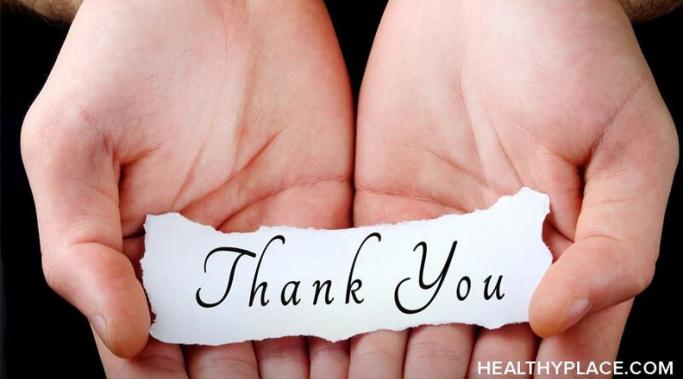Blogs
If your holiday is making you depressed, you should know this is actually pretty common. While it is a mental health myth that the suicide rate goes up during Christmas, that does not negate the fact that many people find the holidays to be a drag. It's okay to feel that way--holidays are a stressful time, and our culture demands a "perfect" holiday so anything that falls short may seem like a personal failure (What Is Holiday Depression?). But the good news is you don't have to have a "perfect" holiday, and there are things to try if your holiday is making you depressed.
Life with bipolar disorder brings a sort of intensity with it so mindfulness skills for bipolar disorder can help. The highs and lows of bipolar disorder can be difficult to manage. If you live with bipolar disorder, mindfulness skills are a great way to help you observe and track your mood so that you can better manage symptoms when you notice changes.
There are a variety of reasons why gratitude is good for our mental health. Gratitude simply means expressing feelings of thankfulness. During depressive episodes or in moments of deep despair it can be discouraging when people encourage you to be grateful for all you have. It causes feelings of guilt on the behalf of the depressed person. Mental health conditions such as depression or bipolar affect all types of people. Although a person's life may be filled with riches it does not eliminate the effects of depression. Nevertheless, our mental health can be helped with gratitude.
I have recently been forced to cope with extreme anger as a symptom of depression. Not crabbiness or grumpiness or irritation--anger. Bitter rage intoxicates my brain and makes it impossible to care about anything (Confronting the Dragon: Mental Illness and Rage). I am indifferent, and I’ve never been indifferent. I cannot find enjoyment in anything, and I have always tried to find little joys. Laughter feels foreign and serenity seems like a figment of my imagination. The most infuriating part is that I have no idea why I am so angry, and the anger has created a setback in my process of coping with depression.
If you find yourself hating the holidays, don’t worry you are not alone in your hatred for this time of year (Ideas for Managing Depression Over the Holidays). The time between Thanksgiving and Christmas is supposed to be warm, fuzzy, and happy but for many of us, it’s not. Many of us actually hate the holidays.
Depressed borderlines can benefit from structure. Borderline personality disorder (BPD) and clinical depression often go hand in hand, causing life to be unbearable at times. Sometimes it is necessary to be hospitalized in a safe environment to receive treatment and to provide structure in daily life. I have required psychiatric hospitalization at times. With each hospital stay I am reminded of this most important coping skill for me. As a person with borderline, I must create structure daily to prevent hospitalizations.
How do you talk to someone with disordered eating around the holidays? The holiday season is a time of gathering and lots of food. The average person may complain of overindulging and gaining some turkey or pie weight. But for the person with an eating disorder, the joy of the holidays can be a time filled with anxiety (Surviving [and Thriving] During the Holidays With An Eating Disorder). Food is a part of celebration but for those with disordered eating, it can be difficult to maintain stability or stay on the recovery path. Added to that stress are the dreaded looks or awkward questions of friends and family members. Here’s how to be a supportive person and talk with someone with disordered during the holiday celebrations.
How do you talk to someone with disordered eating around the Holidays? The Holiday season is a time of gathering and lots of food. The average person may complain of overindulging and gaining some turkey or pie weight. But for the person with an eating disorder, the joy of the Holidays can be a time filled with anxiety (Surviving (and Thriving) During the Holidays With An Eating Disorder). Food is a part of celebration, but for those with disordered eating it can be difficult to maintain stability or stay on the recovery path. Added to that stress, are the dreaded looks or awkward questions of friends and family members. Here’s how to be a supportive person and talk with someone with disordered during the Holiday celebrations.
It’s the beginning of the holiday season, which is typically a time when we all do lots of giving, but sometimes not intentional giving. Mostly, that giving is related to shopping, buying things and spending money. But you can keep your spirit and wallet intact and make an even greater impact if you practice intentional giving throughout the holiday season.
The first stage of mental illness is denial. It's also a common symptom of mental illness and a barrier to treatment. So how do you help people in denial of their mental illness? While it may seem hopeless, there's actually quite a bit that you can do.









